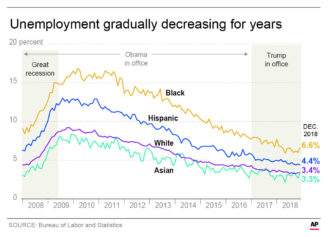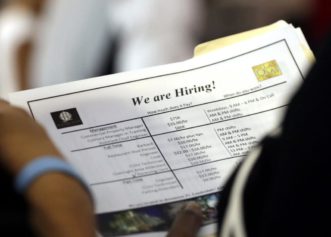Though the U.S. economy added 175,000 jobs last month, which was more than many economists were expecting, the national unemployment rate and the black unemployment rate still rose in May.
Analysts say the rise in the overall rate from 7.5 percent in April to 7.6 percent in May was actually a good sign, indicating that more people began looking for work.
In May, the African-American unemployment rose slightly from 13.2 to 13.5 percent, while the rate among black teenagers remained the highest of any group at 42.6 percent.
The government said the economy added 12,000 fewer jobs in April and March.
While employers have added an average of 155,000 jobs in the past three months, it is far below the average of 237,000 created from November through February.
As a result of the modest job gains, the Federal Reserve has said it will maintain its pace of bond purchases until the job market improves substantially, which acts to drive down interest rates and boost stock prices.
According to the Labor Department, in the week ending June 1, a total of 346,000 people filed first-time claims for unemployment insurance, a decrease of 11,000 from the previous week’s 357,000.
“The softer job market this spring is largely due to significant fiscal drag from tax increases and government spending cuts,” Mark Zandi, chief economist at Moody’s Analytics, which co-produces the jobs report.
Government spending cuts, such as furloughs enforced because of the sequester, are having a big impact on African-Americans, particularly with safety net and education programs, resulting in the black unemployment rate rising to nearly twice as high as the overall rate.
Robert L. Johnson, chairman of the RLJ Companies and founder of Black Entertainment Television, said private businesses and corporations could make a significant dent in that.
“Companies can make a difference by voluntarily implementing procedures that will further their commitment to reduce the employment disparity among African-Americans,” Johnson said. “And in doing so, we can demonstrate the fact that talented African-Americans, if given the opportunity, can succeed at the highest levels, and we will close the employment gap between Black and white Americans.”

